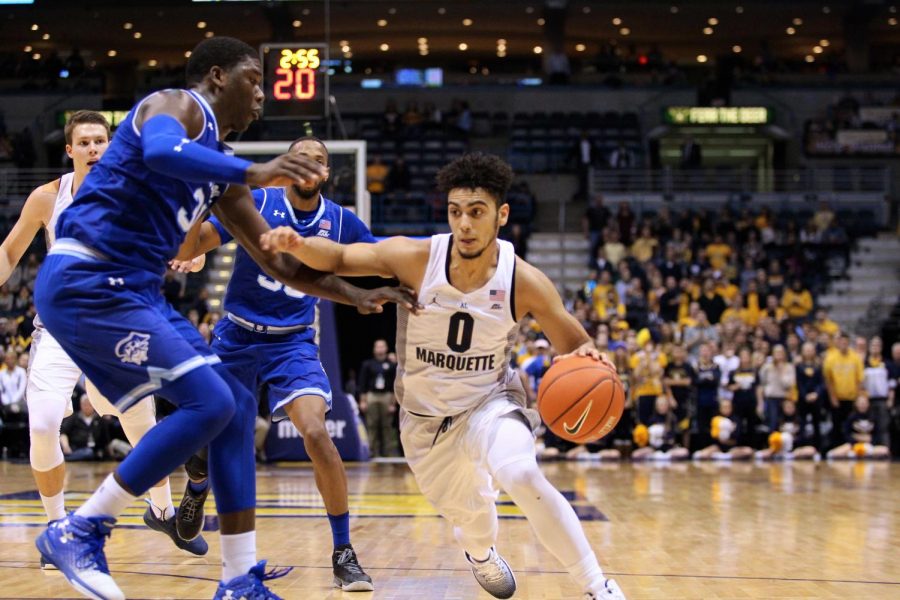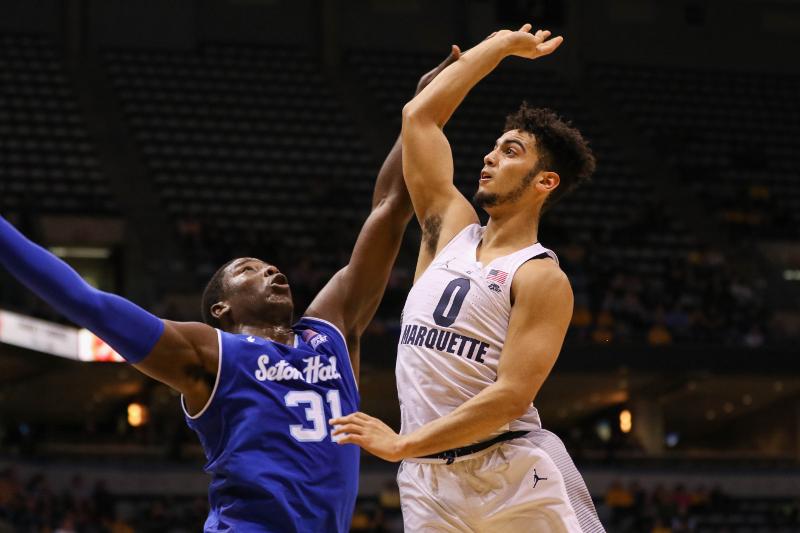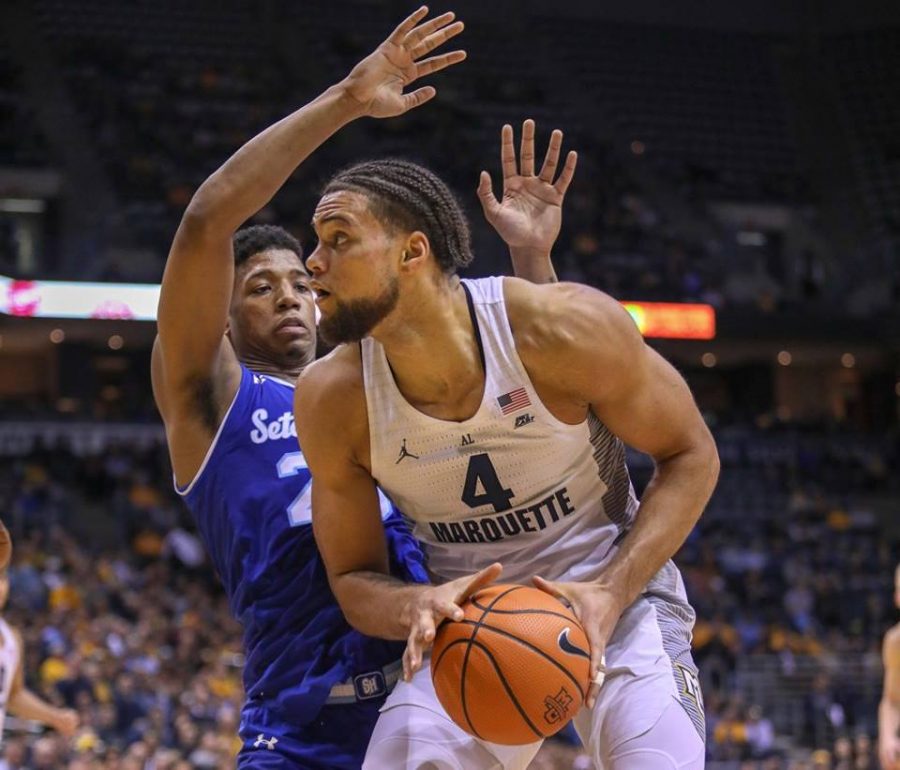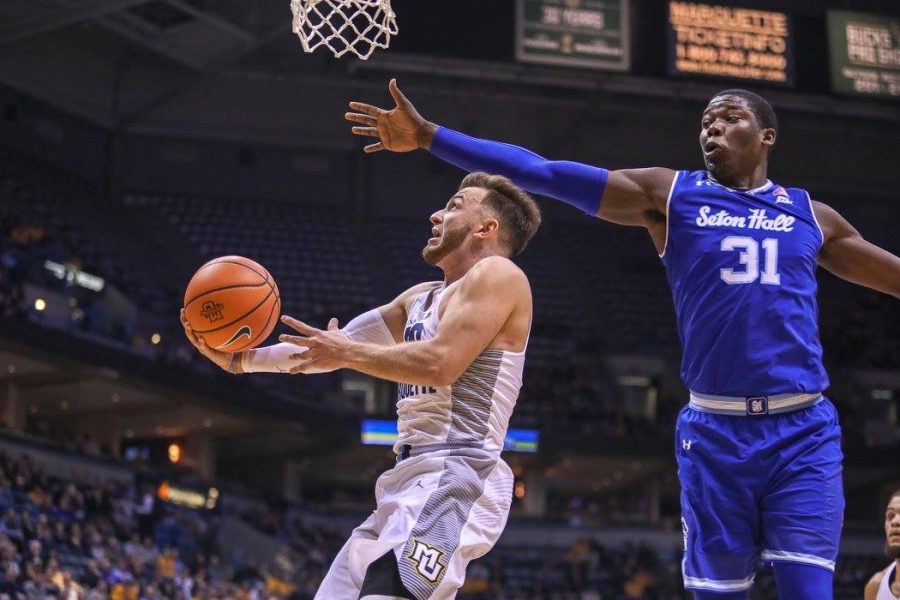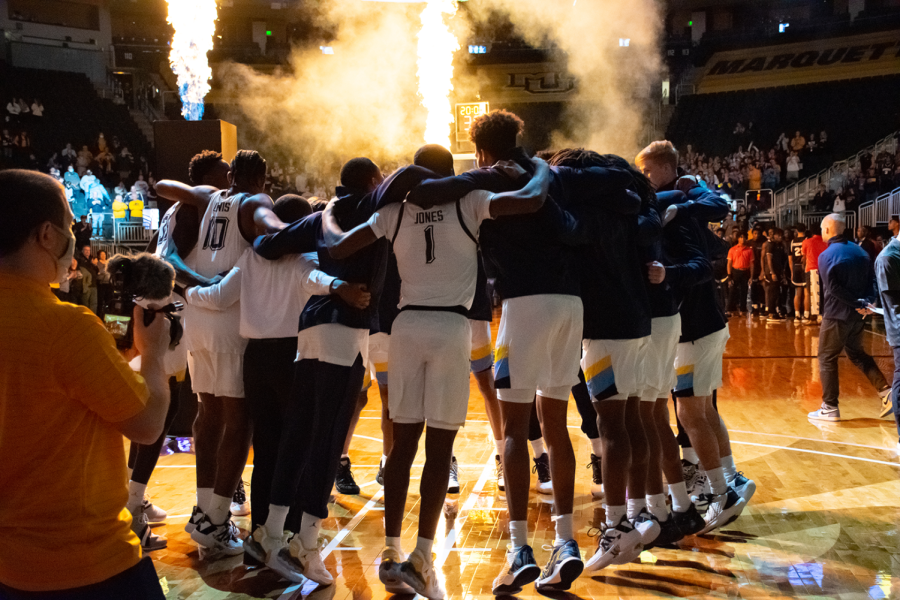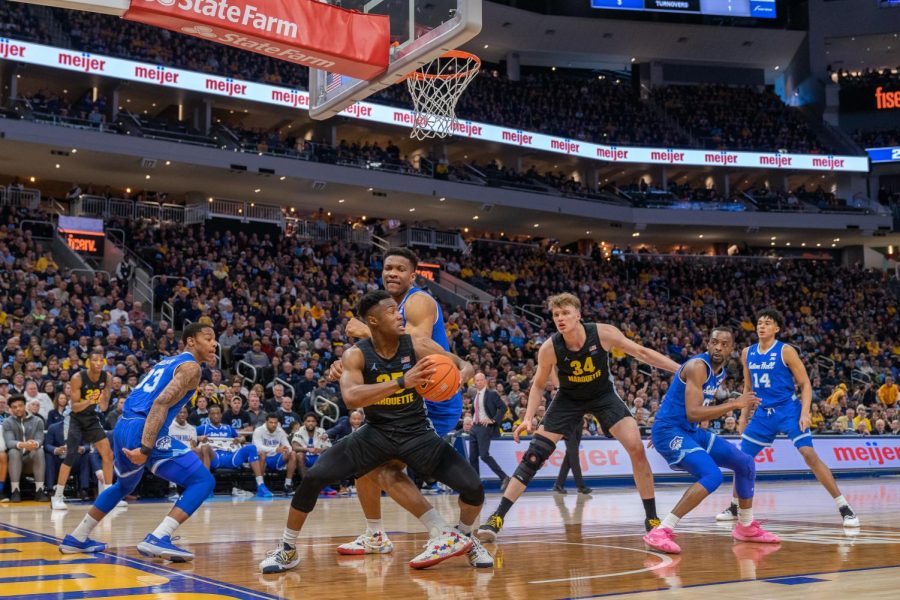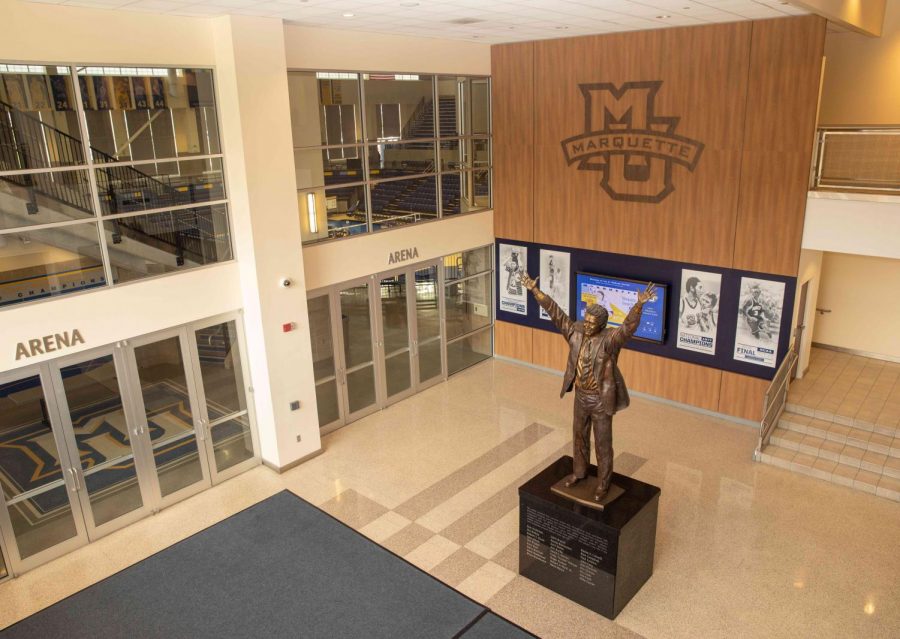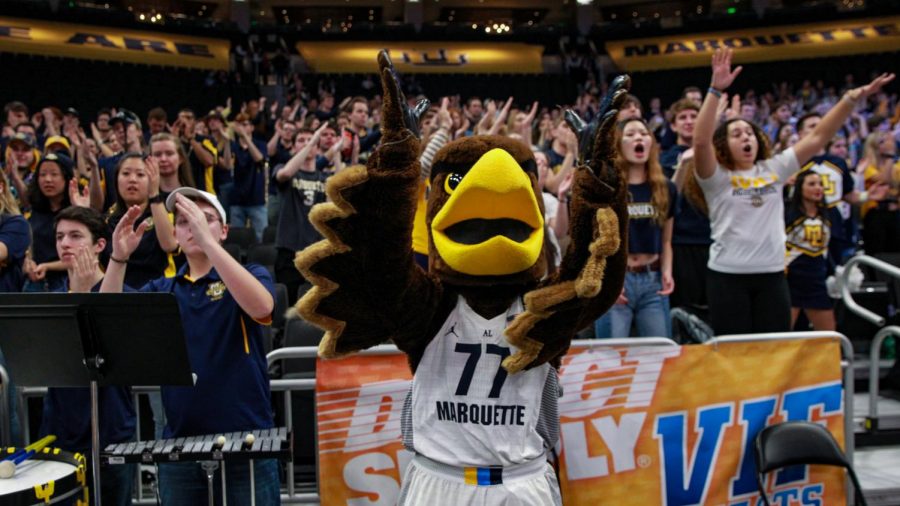It’s possible Marquette’s fortunes in March will be decided in January.
Starting Jan. 6, the Golden Eagles (11-5, 2-2 BIG EAST) embarked on a six-game stretch that includes matchups against four ranked teams. Marquette encountered arguably the most difficult one of the six Saturday, losing 100-90 on the road to then-No. 3 Villanova.
While there’s nothing easy about Marquette’s showdown with No. 13 Seton Hall (14-2, 3-0 BIG EAST), it will be Marquette’s first game back at the BMO Harris Bradley Center since their Dec. 30 victory against Georgetown. Marquette defeated Seton Hall 89-86 at the Bradley Center in overtime last season.
Tipoff is at 8 p.m. CST on CBS Sports Network.
SLOWING DOWN DELGADO
Even for a team that has faced some of the best big men in the country, Seton Hall senior Angel Delgado will pose a problem.
“He is fun to watch; he is not fun to play against,” Marquette head coach Steve Wojciechowski said at BIG EAST Media Day in October.
Wojo spoke from experience. Delgado torched Marquette in the Pirates’ three contests against the Golden Eagles last year, averaging 14.7 points per game and 15.7 rebounds per game. He saved his most impressive performance for Seton Hall’s 82-76 win over Marquette in the BIG EAST Tournament at Madison Square Garden; he scored or assisted 15 of the Pirates’ 27 field goals.
Delgado hasn’t lost a step this year. His 12 double-doubles in 16 games are tied for second in the country behind only Minnesota’s Jordan Murphy. Although the entire Seton Hall team competes for rebounds, Delgado’s instincts on the glass make him the team’s top rebounding threat.
The duty of defending him will likely fall to starting center Matt Heldt, who replaced Luke Fischer when then-starter Fischer fouled out in Marquette’s overtime victory against the Pirates at home last year. Heldt did not allow Delgado a single field goal in the five-minute overtime period.
“There’s nobody in our program that works harder or has a better attitude,” Wojo said of Heldt after that game.
THREE-TON HALL
Teams that played Seton Hall last year found success in packing the paint: Committing multiple defenders to post players and forcing the Pirates to make jump shots. That strategy has become considerably less effective this year.
Seton Hall’s 3-point field goal percentage has risen to 37.9 percent from 33.8 percent last season. While that doesn’t make Seton Hall a lethal shooting team, it forces opponents to think twice before over-committing to the lane.
Much of the improvement is thanks to sophomore Myles Powell, who has carved out a much bigger role in the Pirates’ offense than he did in 2016-’17. He shot only 33.2 percent on 3-pointers last season, but he improved to 42.9 percent this year. Powell has logged double-digit point totals in all but two of the Pirates’ games this season.
YOUNG VS. OLD
The age disparity couldn’t be starker.
When Seton Hall comes out for the opening tip, three of the five players likely to be on the court – Delgado, point guard Khadeen Carrington and wing Desi Rodriguez – are seniors. Before long, the Pirates will probably put in a fourth: Power forward Ismael Sanogo, one of the conference’s stingiest post defenders.
KenPom, a prominent college basketball analytics website, ranks Seton Hall eighth out of 351 teams in minutes continuity. Over 76 percent of Seton Hall’s total minutes are being played by the same guys that played them last year, which signifies a minimal change in the Pirates’ most common lineups.
Marquette is in almost the opposite position. Two of the nine players that get regular minutes are upperclassmen, and guard Andrew Rowsey is the team’s only senior. The team features three freshmen and two players coming off redshirt years.
“We’re throwing a lot of guys into situations they’ve never been (in) before,” Wojo said. “Those kids are growing from those situations.”

